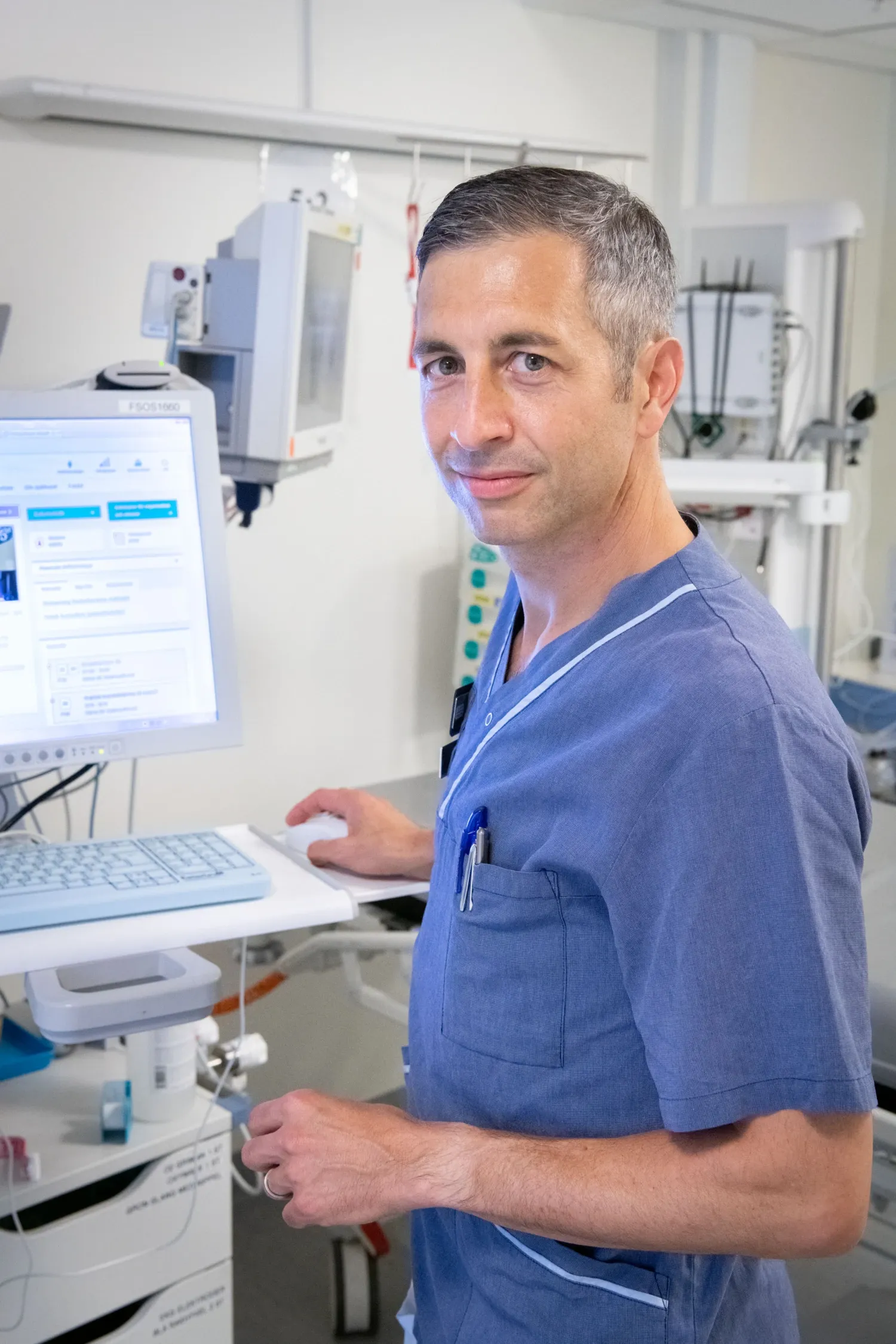Some heart attack patients can benefit from screening for stomach ulcer bacteria

Not all acute myocardial infarction patients should be offered routine screening for the stomach ulcer bacterium Helicobacter pylori. However, it is possible that some patient groups with an elevated risk of post-infarction gastrointestinal bleeding benefit from such a test, concludes a large-scale study from Karolinska Institutet and Södersjukhuset published in the journal JAMA.
Upper gastrointestinal bleeding is a serious complication that affects approximately two per cent of patients within a year of a myocardial infarction.

“It’s associated with increased mortality and the risk of recurring cardiovascular events,” says the study’s lead author Robin Hofmann, senior consultant at the Department of Cardiology, Södersjukhuset, and associate professor at the Department of Clinical Science and Education, Södersjukhuset, Karolinska Institutet. “We therefore wanted to examine if screening for the common Helicobacter pylori bacterium, which causes gastritis and gastric ulcers, can reduce the risk of bleeding. This is currently not routine practice.”
The randomised study included almost 18,500 myocardial infarction patients at 35 hospitals in Sweden. Half the group was tested for the bacterium and treated with antibiotics and protein pump inhibitors by their doctors if testing positive, while the other half received routine care without an extra test or treatment.
Effective in anaemic patients
After almost two years’ follow-up, the researchers found that there were slightly fewer individuals in the screening programme who had suffered gastrointestinal bleeding, but not enough to make the difference statistically significant. However, they found a positive effect of the screening when studying specific sub-groups of patients, such as those with anaemia or kidney failure. A particularly positive effect was observed in patients with moderate to severe anaemia, who suffered gastrointestinal bleeding at roughly half the rate if they underwent screening.
“Our results suggest that screening for Helicobacter pylori does not need to be done routinely for all individuals following a heart attack,” says Dr Hofmann. “On the other hand, testing and treatment could be a meaningful complement for selected patient groups with an elevated risk of bleeding.”
The researchers will now go on to study the long-term effects and try to identify which groups will benefit most from screening.
The study was conducted in collaboration with Södersjukhuset, Region Stockholm and the Uppsala Clinical Research Centre (UCR), and was financed primarily by the Swedish Research Council, the Swedish Heart Lung Foundation and Region Stockholm. Some of the authors have received fees and research grants from pharmaceutical companies – see the paper for a full conflict-of-interest declaration.
Publication
“Helicobacter Pylori Screening after Acute Myocardial Infarction – The Cluster Randomized Crossover HELP-MI-SWEDEHEART Trial”, Robin Hofmann, Stefan James, Martin O. Sundqvist, Jonatan Wärme, Oskar Angerås, Joakim Alfredsson, David Erlinge, Gabriel Arefalk, Göran Arstad, Simon Blomberg, Ole Fröbert, Kristina Hambraeus, Per M. Hellström, Jörg Lauermann, Matthias Lidin, Lars Lindhagen, Georgios Mourtzinis, Carolina Schoede, Erik Thunström, Birgitta Voldberg, Henrik Wagner, Ollie Östlund, Tomas Jernberg, Magnus Bäck, JAMA, online 1 September 2025, doi: 10.1001/jama.2025.15047.
